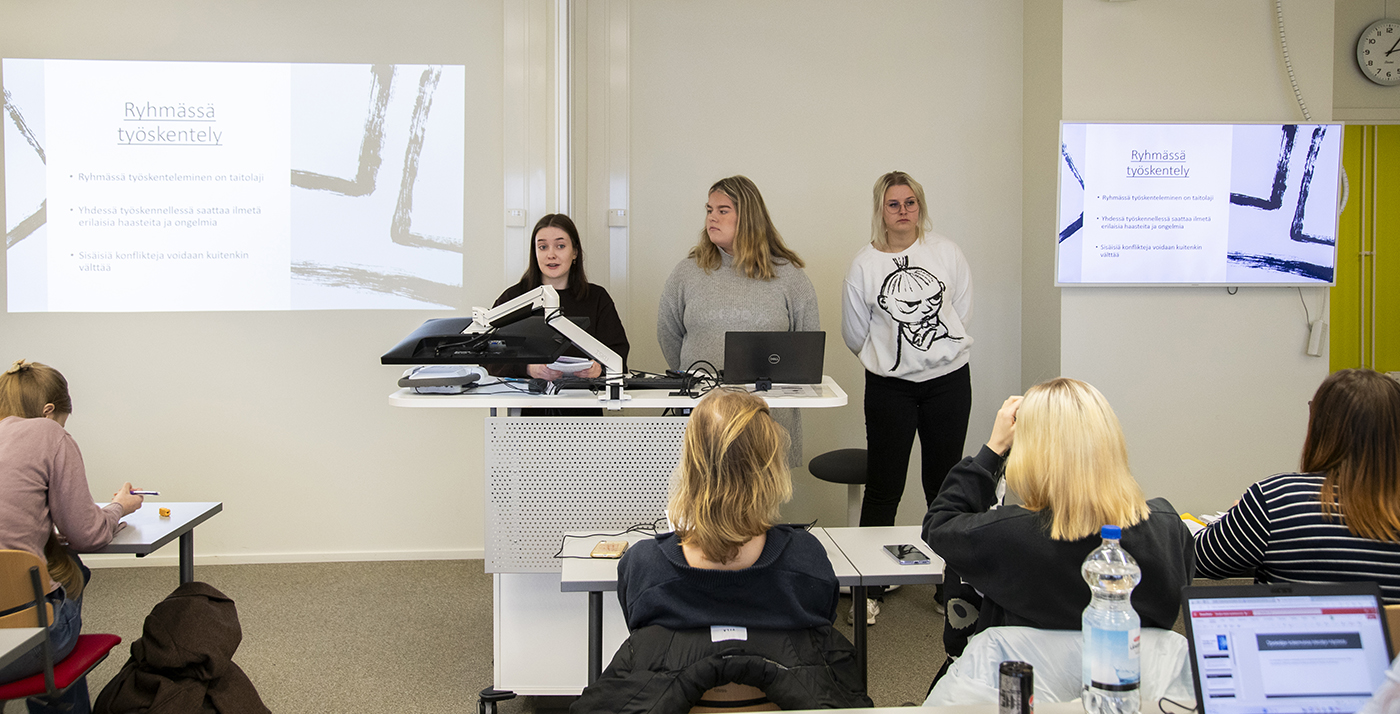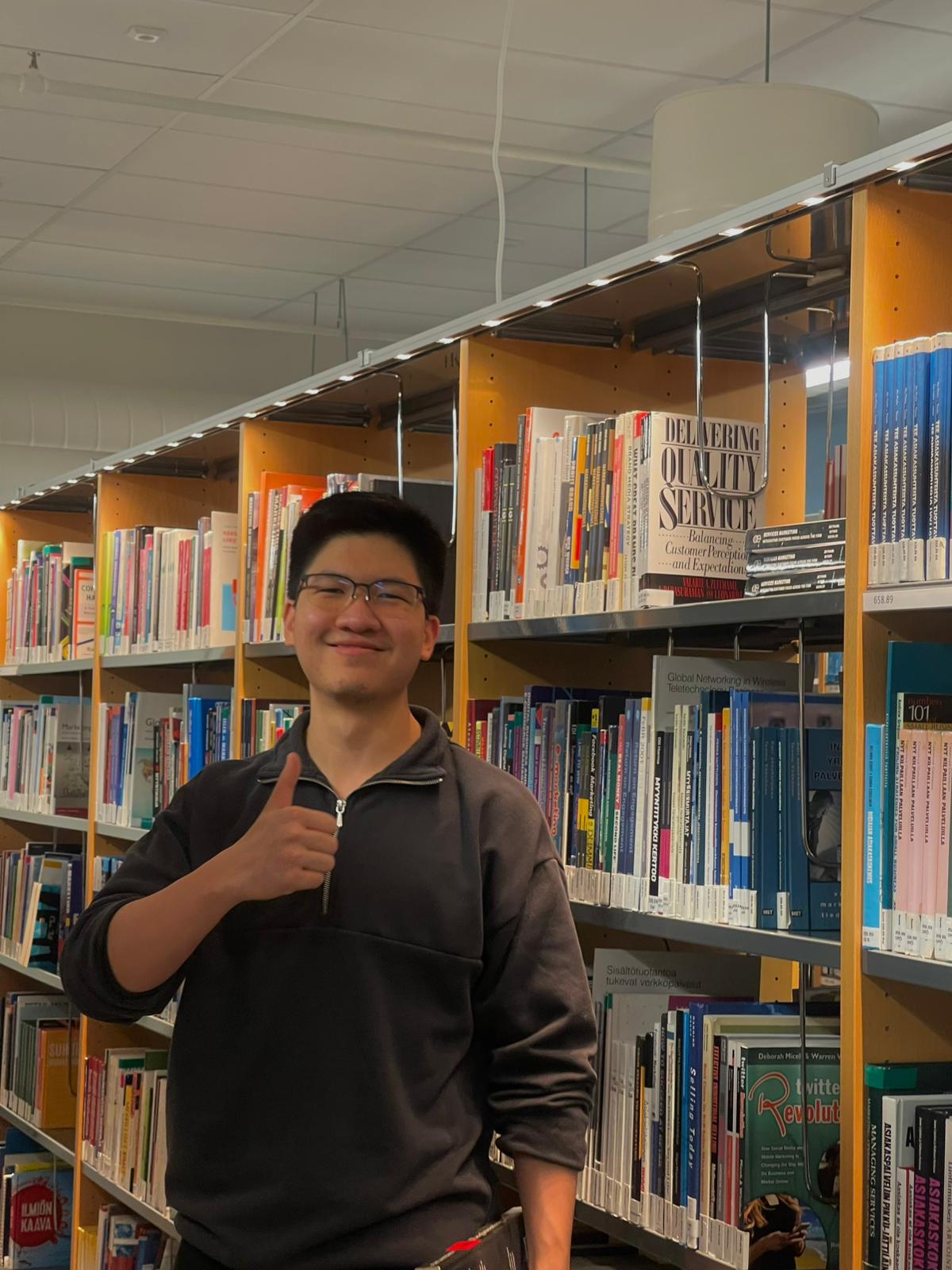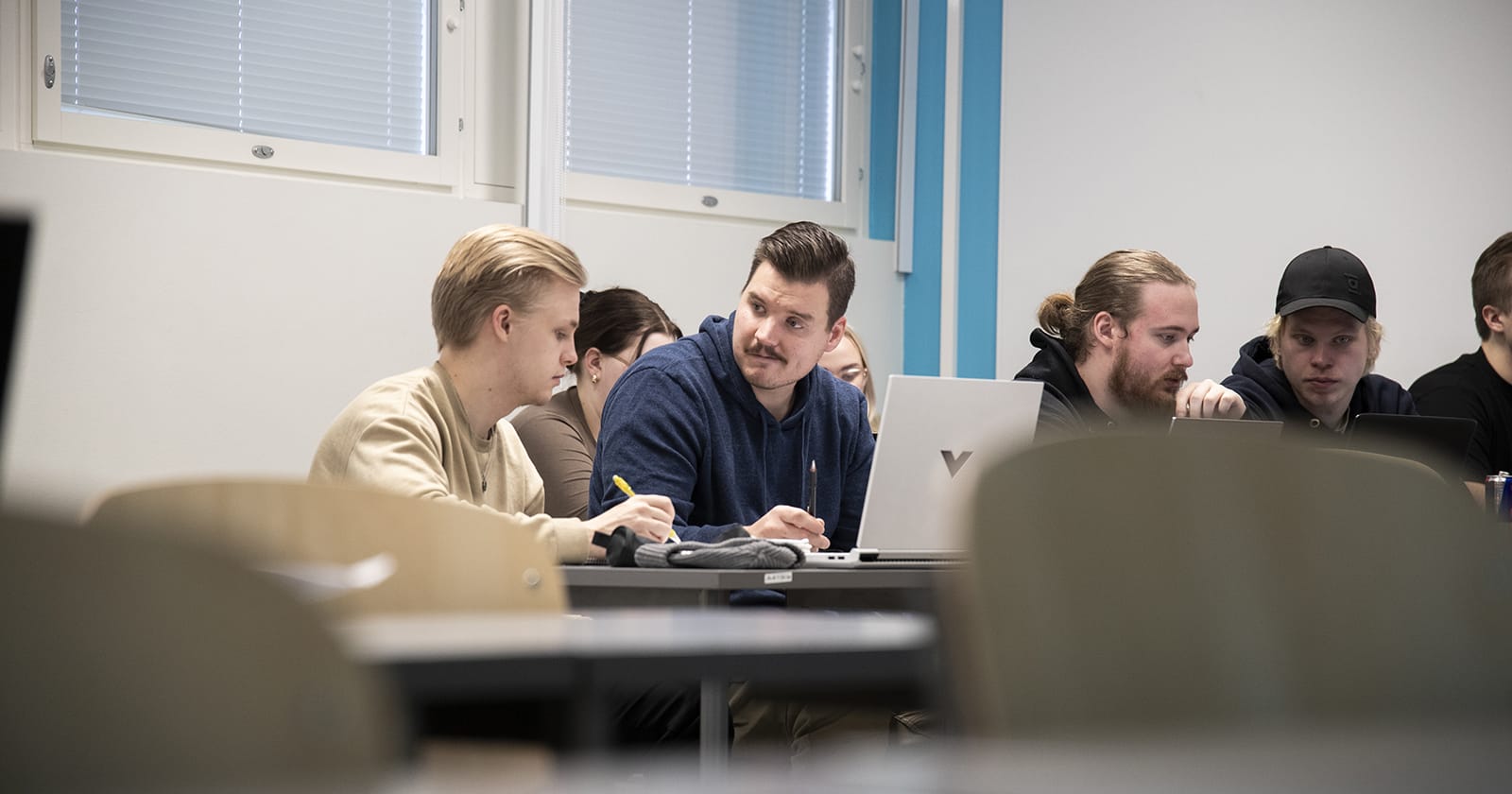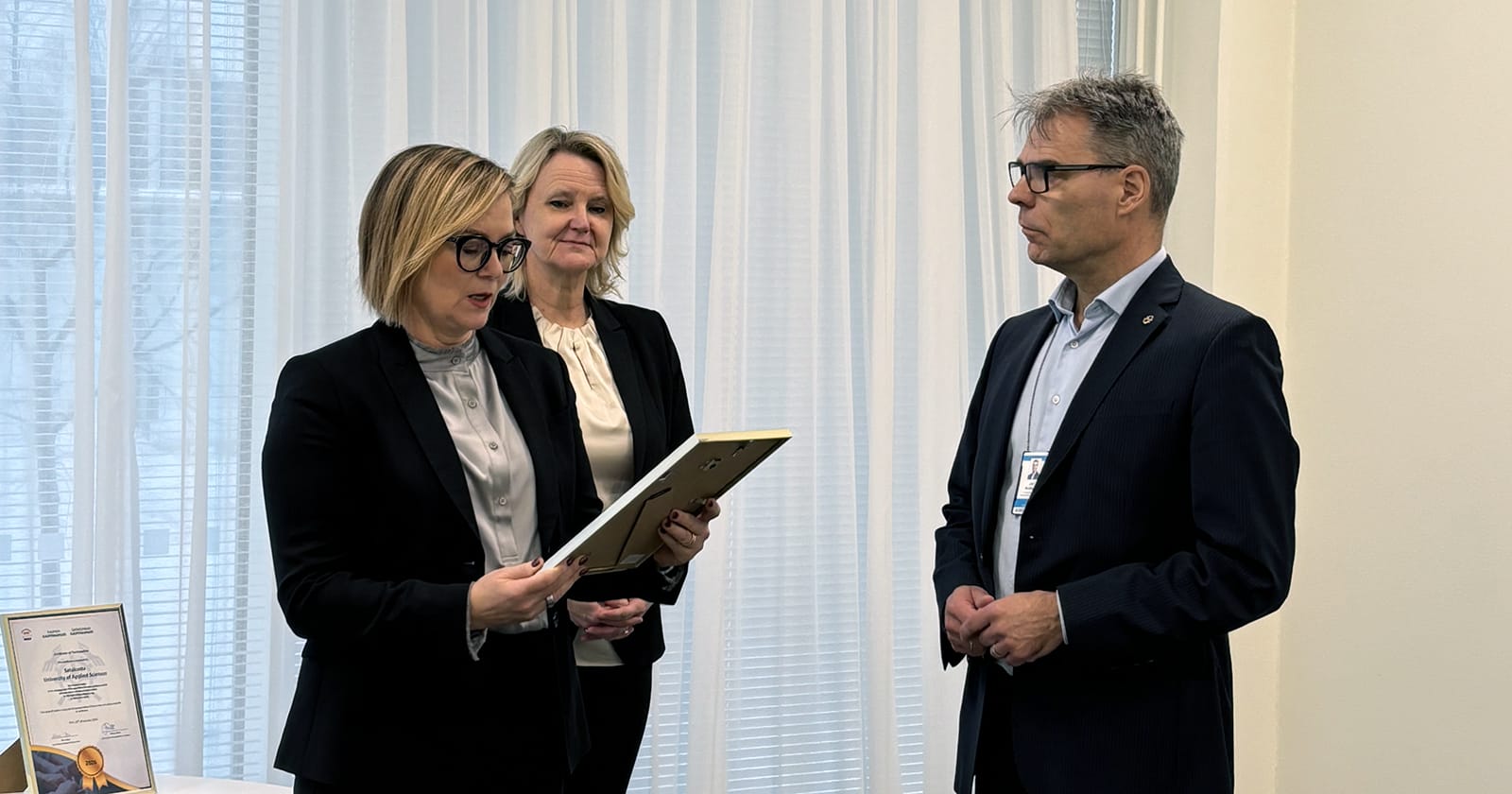The national feedback questionnaire for university of applied sciences graduands (AVOP) measures graduates’ satisfaction with, e.g., the content of their education, guidance and work-life connections every calendar year. SAMK graduates from 2023 were very satisfied with their education – the field ranked first nationally.
At SAMK, you can study to become a bachelor in tourism and hospitality management in two different degree programmes: Tourism and International Tourism Management. The education is based on applying the theory into practice already during the studies.
– Work-based teaching and cooperation with working life in the courses, for example in the form of assignments for industry, visits to companies and guest lecturers, are seamlessly integrated into the daily life of the degree programme. No wonder, then, that work-life connections have received top marks in the questionnaire, says Heini Korvenkangas, Degree Programme Coordinator.
Education plays an important role in developing professional skills
The education of the field plays an important role in developing professional skills and improving career opportunities. In particular, practical training of higher education and team-based project work are becoming more important as students prepare for the world of work. Professional identity develops as studies progress and work experience is gained. Summer jobs and other seasonal work in the field before the higher education practical training support the development of a professional identity. When students return to third-year studies after their practical training, it is easier for them to reflect on issues such as human resources management, as they have first-hand experience to draw upon.
Tourism is an inherently international industry, which is also reflected in education. International examples, guests, exchange students and cross-institutional studies in the International Tourism Management degree programme allow for internationalisation at home. SAMK also has a fairly extensive network of international partners.
– SAMK is exceptionally international for its size, which allows for a multicultural learning environment even if the student does not go abroad for an exchange or practical training. After the COVID-19 pandemic, the number of people going abroad is slowly increasing, and hopefully, at some point, a large number of students will again take advantage of the opportunity to internationalise, says Emma Roinila, International Relations Coordinator for the Faculty of Service Business.
Responding quickly to industry trends and challenges
Various social changes and trends are quickly reflected in the tourism industry. A well-designed curriculum adapts to the phenomena and challenges of the industry. Different generic or digital workplace skills courses, as well as courses focusing on sales and marketing, can be tailored to the current tourism phenomenon – in a student-centred way.
– A bachelor of hospitality management can easily be the only person in the workplace with that type of degree. The tourism industry is made up of many different sectors, so there is a demand for education that goes beyond traditional qualifications. This thinking is also the basis of our new curriculum, which started in 2022. The students now have better opportunities to plan and develop their individual skills, Korvenkangas sums up.
Alumni are an important part of SAMK
Five years after graduation, the alumni have the opportunity to respond to a national career monitoring survey. The survey asks, among other things, how the education prepared them for the stress and time management required in working life and what kind of problem-solving skills the education provided. Together with the AVOP questionnaire, the career monitoring survey is an important indicator and feedback for the education provider.
A large proportion of the 2023 graduates started their studies in 2019 and 2020, meaning that COVID-19 restrictions largely dominated their study years.
– In this respect, the result of the AVOP questionnaire came as a pleasant surprise, even though the success is based on a long-term development effort to improve education and ensure quality. Alumni are an important part of our work, also from the point of view of current students, says Korvenkangas.



